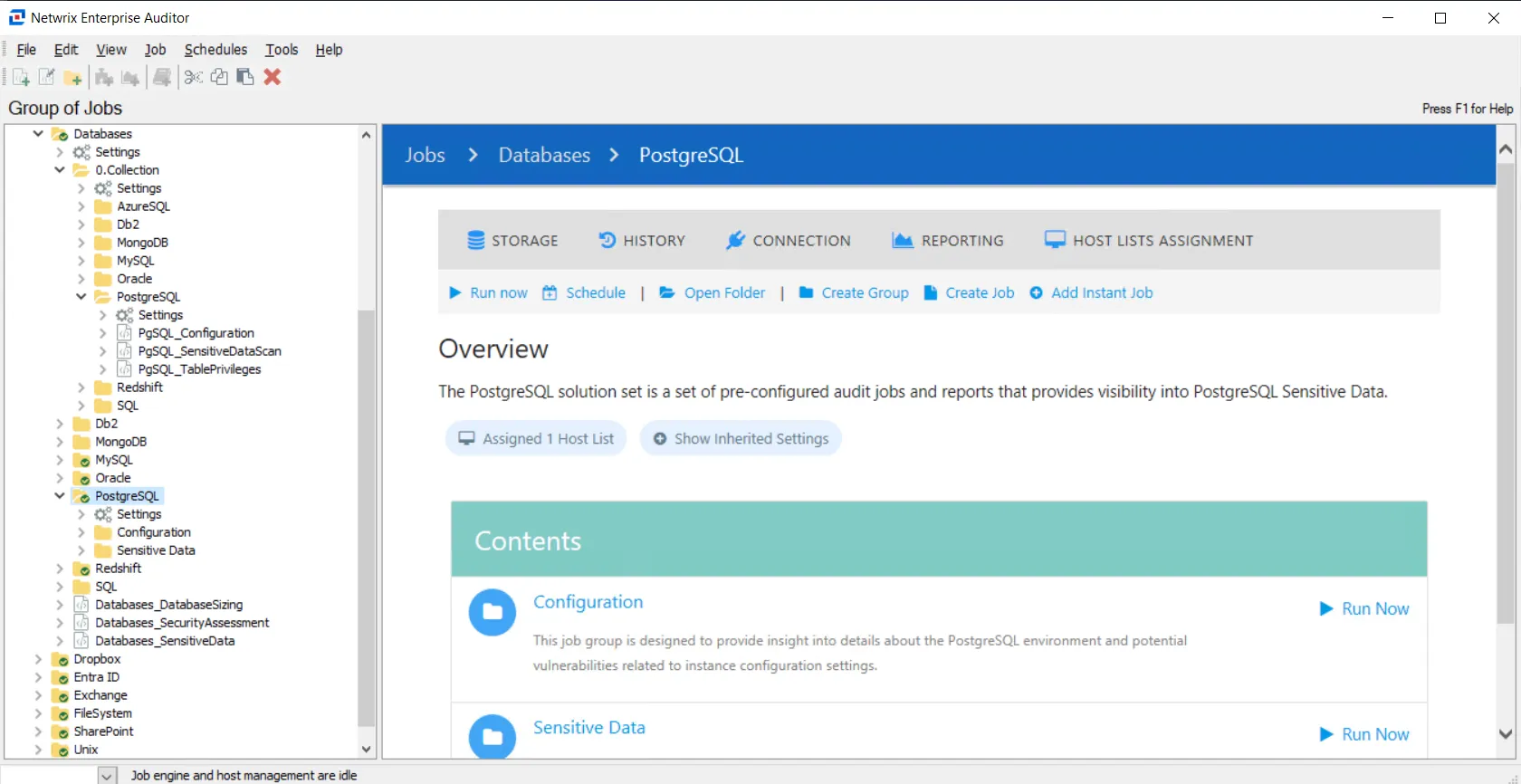PostgreSQL Solution
Data privacy and security is quickly evolving to be on equal footing with traditional security measures focused on the network, hardware, or software the data is contained within. Organizations aligning to concepts like Data-Centric Audit and Protection (DCAP) as defined by Gartner, or the requirements of strict compliance regulations like EU GDPR, are looking to implement processes that help them understand where sensitive data is stored, who or what is leveraging their privileges to access the data, and how each database has been configured.
As part of Netwrix comprehensive Data Access Governance suite for structured and unstructured data, Access Analyzer for PostgreSQL automates the process of understanding where PostgreSQL databases exist and provides an overview of the PostgreSQL environment in order to answer questions around data access:
- Who has access to your data?
- Where is sensitive data being stored?
With visibility into every corner of PostgreSQL, organizations can proactively highlight and prioritize risks to sensitive data. Additionally, organizations can automate manual, time-consuming, and expensive processes associated with compliance, security, and operations to easily adhere to best practices that keep PostgreSQL Server safe and operational.
Supported Platforms
- Open Source PostgreSQL 9x through 12x
- Enterprise DB PostgreSQL (10x trhough 12x)
- Amazon AWS Aurora PostgreSQL Engine (all versions supported by Amazon AWS)
- Azure PostgreSQL (9.6)
Requirements, Permissions, and Ports
See the Target PostgreSQL Requirements, Permissions, and Ports topic for additional information.
Sensitive Data Discovery Considerations
If running Sensitive Data Discovery (SDD) scans, it will be necessary to increase the minimum amount of RAM. Each thread requires a minimum of 2 additional GB of RAM per host. For example, if the job is configured to scan 8 hosts at a time , then an extra 16 GB of RAM are required (8x2=16).
By default, the job is configured to use 10 threads, which can be adjusted based on available resources on the Access Analyzer server.
The appropriate JDK (Java) version for Sensitive Data Discovery is installed on the server. The JDK deployed is prepackaged and does not require any configuration; it has been preconfigured to work with Access Analyzer and should never be customized through Java. It will not conflict with other JDKs or Java Runtimes in the same environment.
Location
The Structured Sensitive Data Discovery License is required to run the PostgreSQL Solution. It can be installed from theAccess Analyzer Instant Job Wizard. Once it has been installed into the Jobs tree, navigate to the solution: Jobs > Databases > PostgreSQL.
The 0.Collection Job Group performs sensitive data discovery and collects information on database configurations on the target hosts. The other job groups analyze and report on the data collected by the 0.Collection Job Group.
The Database Solution license includes all supported database platforms supported by Access Analyzer. Additionally, Sensitive Data Discovery enables the solution to search database content for sensitive data.
Job Groups
The Access Analyzer PosgreSQL Solution Set is a set of pre-configured audit jobs and reports that provides visibility into PostgreSQL Sensitive Data.

The job groups in the PostgreSQL Solution are:
- 0.Collection Job Group - Designed to collect high level summary information from targeted PostgreSQL Servers. This information is used by other jobs in the PostgreSQL Solution Set for further analysis and producing respective reports
- Configuration > PgSQL_DatabaseSizing Job - Designed to provide insight into details about the PostgreSQL environment and potential vulnerabilities related to instance configuration settings
- Sensitive Data Job Group - Designed to provide insight into where sensitive data exists and who has access to it across all the targeted PostgreSQL databases